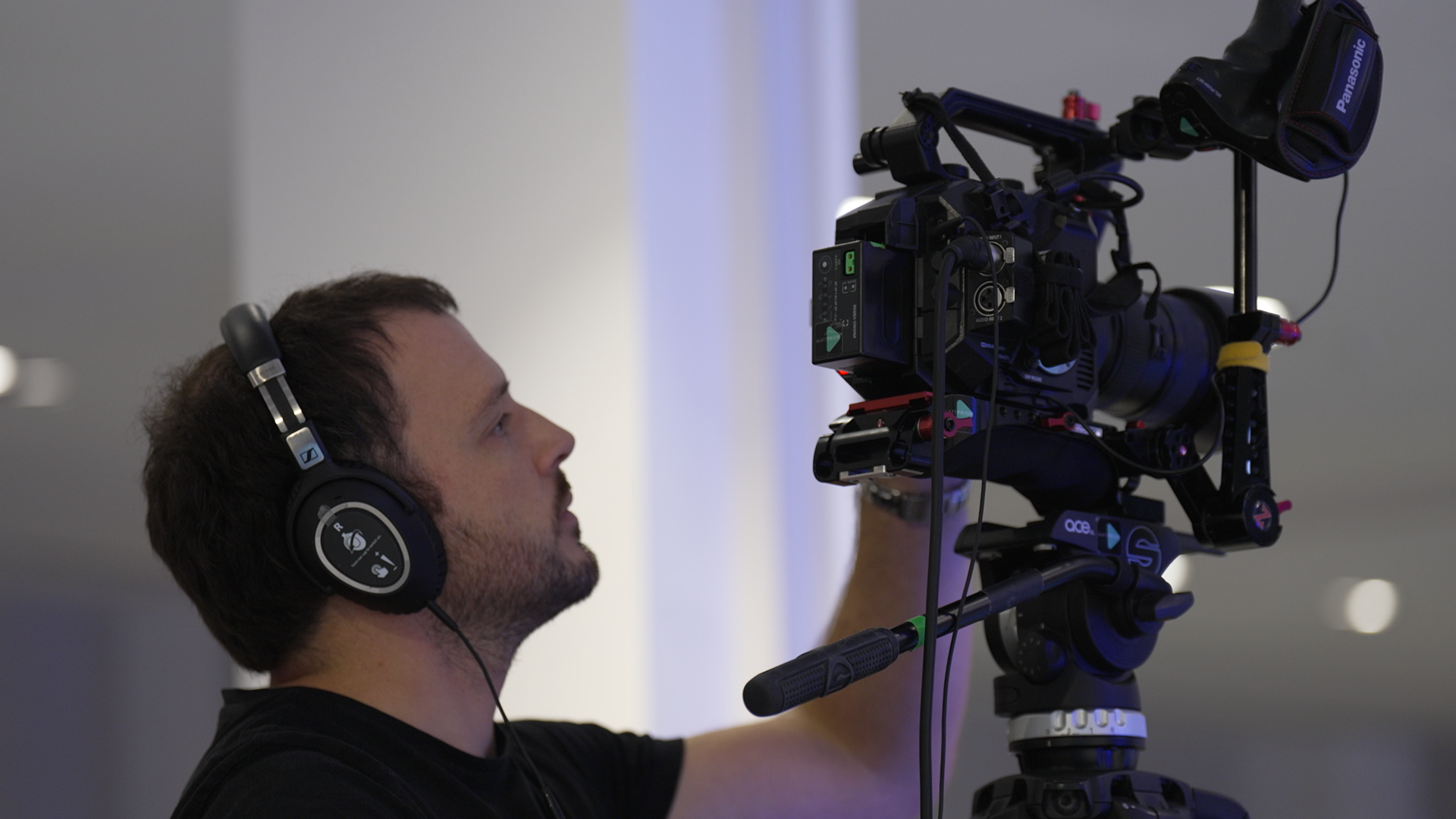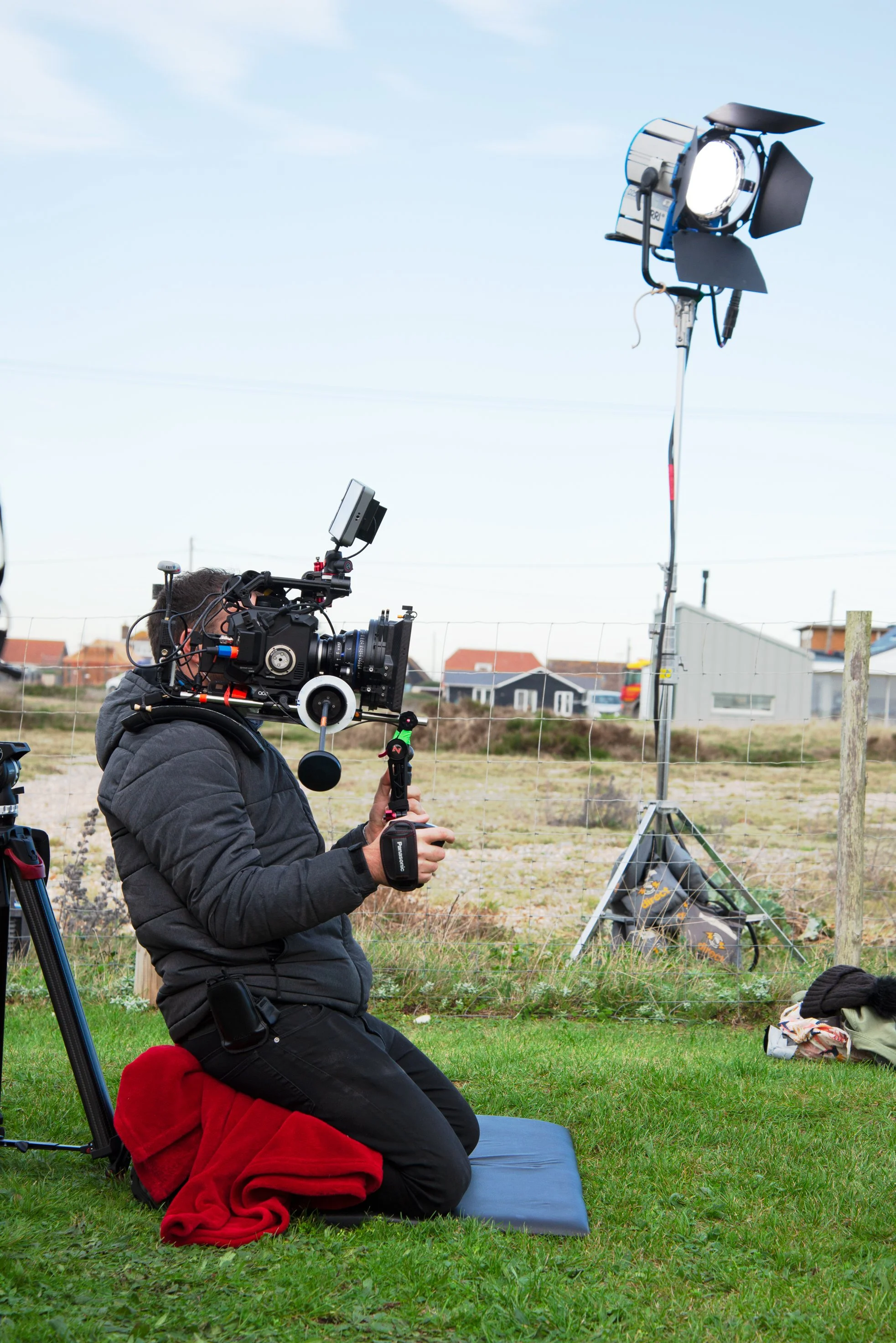10 Years of Freelancing & What I’ve Learned
Self employment has been a bumpy ride, but I wouldn’t change it for the world!
It’s been just over a decade since I received my first payment for a freelance video job. Although a measly sum, it started the ball rolling on to what has been an interesting - if turbulent - career so far. When I look back on my reflections 5 years ago, I realise that I have probably learnt more in the past 5 years than the first! For anyone reading who might be considering making the jump into freelancing, hopefully my thoughts and experiences will help you.
Things have changed in many ways since my last post. As is impossible to forget, in 2020 the pandemic hit. Many small companies went under, and the business landscape changed forever. Sadly, some of my colleagues never returned to the creative industries as they were too volatile. We’ve also seen the rise in AI and the threat it poses to those of us, as has been seen in the recent writers and actors strikes in the US. Climate change continues to pose a threat to us all, as does the spectre of inflation. And for those of us fortunate enough to have made it onto the property ladder, central bank interest rate rises threaten to cripple our finances, along with those trapped in the private rental sector. Basically, it’s a bit of a s*** sandwich right now!
So, in this context, if you are considering making the jump into a freelance career - for there are in fact many benefits - it’s more important than ever that you’re as informed as you can be to the risks and opportunities that you’ll face.
So, here’s what I’ve learned after 10 years of freelancing:
Trust your gut (ignore this at your peril!)
“My gut feeling was right, and ignoring it once cost me. But at least my b******t detecting skills improved considerably as a result.”
There was some irony in my previous post because a few months after publishing it I learnt one of the hardest lessons of my career so far. In the space of a few months, I had 2 clients go into liquidation costing me several thousand pounds in lost earnings. The warning signs were there, and I either ignored them or failed to see them until it was too late.
Focusing on one of those experiences, I was chilling out at the beach one summer and received a text message out of the blue:
‘Hi Matt, are you free on Friday for a shoot?’
No name, no company, no suggestion of what the shoot was - an immediate red flag. However, after finding out more information, when the same guy contacted me a few weeks later and my empty diary was staring back at me, I took a chance on it. My gut feeling was that there was something not right about the way this guy was conducting business. Fast forward a few months and he’d outsourced too many jobs, not charged enough to make anything himself and left more than a dozen freelancers out of pocket.
My gut feeling was right, and ignoring it once cost me. But at least my b******t detecting skills improved considerably as a result. Excuse me while I just add that to my CV!
Get everything in writing and be transparent
The saying ‘when it rains, it pours’ is 100% true when freelancing. However, as we get swept up by our busy - and often chaotic - lifestyles, it can be easy to let important things slip. Getting key aspects of your service such as costs, deadlines, and briefs in writing, (even for clients you regularly work with) is so important. Even the most straightforward email can form a very basic contract. If you do this it stops you, the freelancer, getting screwed over when someone comes after you for something you never actually agreed to. If you can back it up with writing, then you don’t risk losing the client because you didn’t go back on what you promised and you avoid damaging a relationship with someone else who’s work may suffer if you suddenly had to drop them at the last minute.
There is nothing wrong with deliverables changing mid-project, as the business world is constantly changing, however managing client expectations well is key to navigating this successfully and that requires clear communication. Be flexible when you can, but don’t be afraid to point out when something isn’t realistic. Most people will appreciate your honesty!
Make templates for everything
As a video editor it’s easy to make templates for various clients, whether that be project files with clearly laid out folders and preloaded graphics, or equipment checklists for shoots. But when I say ‘everything’ I also mean the mundane stuff that is non-billable.
Even something as simple as email templates offers a potential time saver
Here’s an example: emails; the dreaded time waster! Think about it; if you can save even just a small amount of time each day using templates then over time that will add up to something quite significant. They can also be really useful when trying to deal with difficult situations because it’s easy to take things personally when things get tough. You don’t want to respond to negative communications in an emotional - and potentially unprofessional - way.
To avoid saying anything you might regret and save time in the process; think of some difficult situations you might face in your work and write down a few responses for these issues. When you come to need them, you’ve already taken any emotion out of the response, leaving you just to copy, paste and tweak. Editing these accordingly is much easier than having to write from scratch and you already know that what you’ve written is clear and polite. If you’ve managed the client’s expectations as per my previous point, then you have no need to worry and can hit send!
Beware complacency
“Sometimes we lose clients through no fault of our own. Whilst this can be hard, it is part and parcel of the lifestyle we have chosen and should not be taken personally.”
Don’t assume your regular clients will always be there. Organisations evolve and circumstances change. Sometimes we lose clients through no fault of our own. Whilst this can be hard, it is part and parcel of the lifestyle we have chosen and should not be taken personally. Maybe our contact decided to leave the firm or take on a new role, for instance.
Even for those clients whom you’ve been working with for many years - don’t assume that their needs for one project will be exactly the same for the next one. Always chase for project briefs and deadlines, just to be sure!
And lastly, don’t let your marketing efforts slip during busy periods (yes, I know…pot calling kettle black here!). Complacency is the enemy. Stay in touch with your network and always look forward to your next opportunity!
Opportunities can present themselves in the most unlikely of places. So be nice to everyone!
I shouldn’t have to tell you to be nice. But really, as a freelancer it’s more important than ever that you’re nice to everyone. Sadly, it is often more about who you know, rather than what you know. Hopefully one day this will change, however the upside is you can get leads in unexpected places. Down the pub with friends, at a club or society, or maybe through mutual contacts on social media! It is all about relationship building and if people like you, they’re far more likely to buy from you.
So, unless you consider yourself to be a miserable git, just be yourself!
You may need to have your hands in a few different pies (but don’t become the jack of all trades)
On location in Dungeness shooting indie drama ‘The Last Time You Saw Me’
Back to the pandemic for a moment. At the time my bread and butter was making event highlights videos and when Covid hit the events industry several months of work was wiped out of the diary in the space of 3 days. That was easily the scariest part of my career so far. But, where one door closes another one opens, and a new opportunity presented itself.
A few years previously I’d been involved in a little indie feature film called ‘Twenty Twenty-Four’ as the camera operator. Suddenly in this era where everyone was out of work and interest rates were at rock bottom, it became a really good time to borrow money and invest in personal development. The producers took advantage of this climate and approached me to make their next film, this time stepping up as Director of Photography, which involved managing a small camera and lighting crew. Not only was it one of the most challenging and rewarding experiences I’ve ever had, but it was also an incredible step up in scale and complexity to the work I was used to, alongside being a wonderful addition to the portfolio. Ultimately, this experience never would have happened if I hadn’t had dipped my toes into another world, simply out of curiosity.
However, if we stretch ourselves too thin then we don’t end up being particularly good at anything and - crucially - people don’t remember us for being good at anything either. From a creative’s perspective - imagine watching a film where the director also wrote it, acted in it, shot it, recorded the sound, edited it, and then made some music for it. The film would probably suck!
I believe if we focus on 2-3 core strengths then that allows us to diversify enough for some security (and variety, if that’s important to you) without sacrificing the quality of work that we do. What do you think?
Your mental health really should take priority
Checking out the sea life a few miles off the coast of Brighton. Don’t let work stop you from pursuing what you enjoy!
Another thing the pandemic instilled in us was the importance of looking after our mental health. The life of a freelancer can be quite isolating at times, so it’s really important to make time for activities that help you burn off some steam, and maybe even get you involved in a community. Whether that’s trying a new hobby, meditation or just going for a walk round the block, these things really matter.
Since my previous post, I ticked off a bucket list item of mine - to learn to scuba dive! Whilst unrelated to the day job, it’s taught me valuable skills that could easily be transferred, such as remaining calm under pressure (physically and metaphorically speaking) and planning. What have you always wanted to do?
Lastly, try to remove sources of negativity from your life. The freelancing lifestyle is hard, but only made worse by toxic environments and those who don’t support you in your mission to do good work. Whether that’s a client treating you badly or certain social media platforms distracting and/or depressing you, cut them out. Life is too short!
Being financially prudent is essential
I included this one in my previous post, so why again you ask? Because it really is THAT important (and the learning doesn’t stop).
As a freelancer you are forced into being good with money. It could mean the difference between a roof over your head or not. No holiday, sick, maternity or paternity pay and no employer contributions towards your pension. No one else is going to manage these things for you, so you have no choice but to develop good financial habits. But it’s not as difficult as some might think!
Some of the things you might want to consider are:
Paying into a private pension/increasing contributions when you can - I wish I’d started earlier, but starting late is still better than not at all. Compound interest cannot be underestimated!
Saving for a rainy day - They say 3-6 months outgoings is good as an emergency fund, but really anything at all is good in this uncertain climate. At time of writing interest rates are the highest they’ve been in years - so take advantage of challenger banks with decent interest on their savings accounts! Martin Lewis, you are our saviour!
Getting an accountant, even if your tax affairs are straightforward - I wish I’d done this years earlier. Hiring a professional to do this, who is up to date on the latest regulations, should save you enough time that it more than justifies the cost of their services. As a sole trader in the UK, accountancy services are tax-deductible anyway!
Investing (if you have the appetite for it) - As with the pension, compounding is key and may present a chance to beat inflation over time. It’s all about the long game, but only if you can afford it and understand the risks.
Keeping an eye out for business perks - Just by running a business you may be able to find offers from institutions that aren’t available to the general public. Whether it’s business cashback credit cards, access to wholesalers such as Booker or discounts on life essentials and luxuries through a union (Prospect Plus is a good example), keep your eyes peeled!
If you make a success of it, try to give back somehow. Even if it’s only in a small way, it feels good!
Yes, I know your time is precious. But even something as small as offering work experience placements to keen students or providing free advice to someone who’s starting a business of their own, could make all the difference to someone’s life. Perhaps you work in a competitive industry, a certain demographic is underrepresented in your field or maybe you struggled to get into your chosen profession yourself. Whatever your situation - give back, it’s worth it!
Lastly, channel time spent waiting into something productive (but fun)
Whether it’s waiting endlessly for client feedback or for public transport to actually turn up, being in a productive mood whilst not being able to make any progress due to factors outside of our control can be incredibly frustrating. How could you turn this dead time into something useful? And even better, what if it contributed towards personal growth rather than always being directly related to work? There is no one size fits all answer, but I think there’s something out there for everybody.
For me, the answer was language app Duolingo (387-day streak and counting)! If you haven’t used it, give it a go (and do share your suggestions of other apps, activities or podcasts that work for you!)
Hopefully you’ve found these points helpful, but if there’s only thing to take away, it’s this:
To be a successful freelancer, you must accept that you’ll always be learning. Embrace it.
If you think you know it all, you don’t. Period. This is one of the best things about freelancing, because you’re always finding new ways to be better at your job and to refine your service. However, if you do make a mistake, providing you learn from it, you’ll be a stronger person for it. I believe this sits perfectly within a continuous improvement methodology.
Ultimately, if you’re prepared to get stuck in, accept that you’ll always be learning and are always willing to do so, then a rewarding freelance career awaits you.
Thanks for reading.
Other posts that may interest you:
Still curious about freelancing? Here are some more things I’ve learnt over the years!
If you’re concerned about how to manage your down time as a freelancer, I spoke to some colleagues to see how they manage theirs.
And for the techies amongst you, I recently dumped Adobe Premiere for another editing program. Here’s why!




